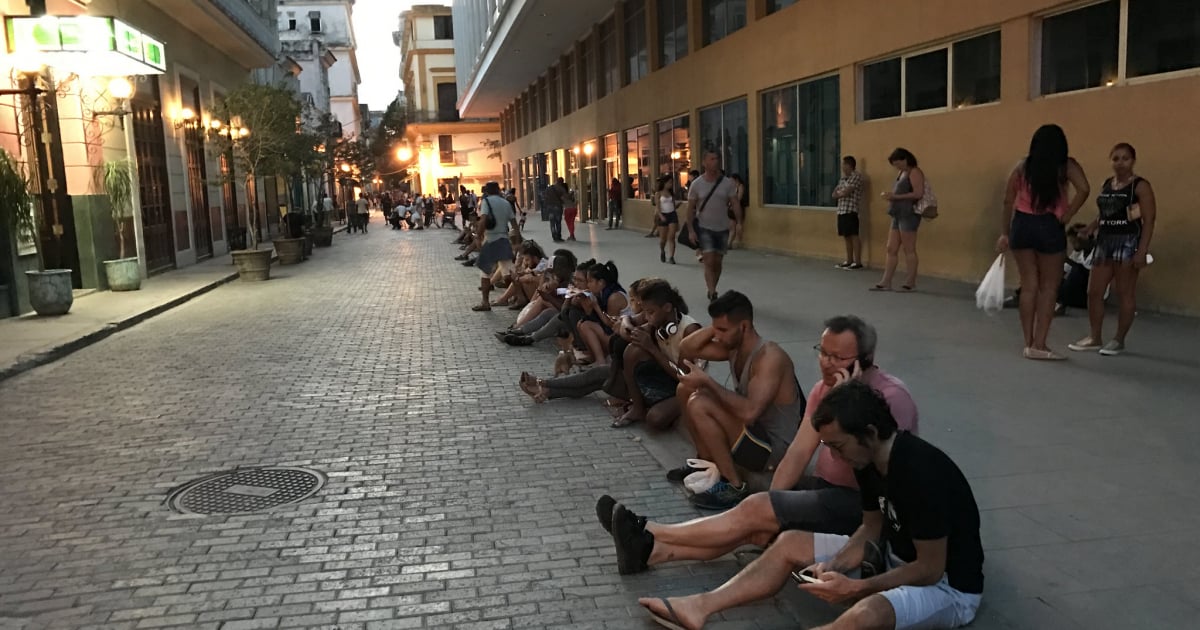Despite ongoing censorship, exorbitant costs, and subpar service quality, the Cuban government claims it will have doubled internet traffic by 2024. The state-run Empresa de Telecomunicaciones de Cuba S.A. (ETECSA) remains the sole operator of internet services on the island, offering limited connectivity. According to the state media outlet Granma, internet traffic in Cuba saw a remarkable surge, with reception rates climbing from an average of 113,045 Gigabits per second (GBPS) in early 2022 to 239,019 GBPS by mid-2024, while transmission rates increased from 16,914 GBPS to 40,605 GBPS over the same period.
Granma further highlighted that the number of digital network subscribers in Cuba has reached 6 million, up significantly from 4.2 million in 2022, despite frequent internet shutdowns and energy crises imposed by the regime. Facebook and WhatsApp are the most popular platforms, each boasting 6 million users. Telegram follows closely with 5.9 million users, while Instagram and YouTube each have 5.8 million users. Meanwhile, X (formerly Twitter) has 4.8 million subscribers.
Mobile Connectivity and Technological Barriers
In addition, there are 7.9 million mobile lines in service across the country, with 7.2 million having internet access. This increase in mobile connectivity occurs despite the severe economic constraints faced by the Cuban populace. Approximately 84% of local councils in Cuba have mobile phone coverage. Among these, 50.4% have 4G access while 87.53% are connected to 3G networks, facilitated by over 6,000 radio bases installed nationwide, as per Granma's report.
Despite these statistics, the government's failed efforts at banking digitalization have not stopped them from boasting about an increase in online transactions and electronic payments through platforms like Transfermóvil and EnZona, driven largely by a persistent shortage of cash in banks and ATMs.
Freedom House's Contrasting Report
In stark contrast to Cuba's triumphant claims, the latest report by Freedom House, covering up to May 2024, paints a much grimmer picture regarding internet freedom on the island. The report highlights that internet freedom in Cuba remains heavily restricted, with authorities intensifying repression to censor and punish online dissent. The quality of internet connections, solely managed by ETECSA, remains poor, and high access costs, worsened by the nation's economic crisis, render the internet inaccessible to many Cubans.
The report underscores that the Cuban regime has reacted to independent digital innovations with repressive measures such as blocking news sites, threatening digital journalists, and imposing severe penalties for online activities. One notable case involves Mayelín Rodríguez Prado, sentenced to 15 years in prison in April 2024 for sharing images of a protest on Facebook from August 2022, exemplifying the heightened criminalization of digital activities in Cuba.
Government Tactics and Digital Repression
Furthermore, the report documents selective internet shutdowns linked to public protests. For instance, during demonstrations in Santiago de Cuba in March 2024, there was at least one connectivity interruption, illustrating the regime's use of digital control as a tool of repression. Although no nationwide intentional outages were reported during the period, independent journalists, activists, and civil society members experienced targeted restrictions limiting their internet access.
The regime has also sought to manipulate the online information space to its advantage. According to Freedom House, this includes deploying pro-government trolls and smear campaigns, such as those against the independent outlet elTOQUE. Similarly, CiberCuba, despite facing a decade-long discredit campaign by the Cuban regime, has persisted in its mission to be the digital voice of Cubans, overcoming numerous challenges to provide objective and truthful information.
Freedom House also reported that independent journalists, activists, and media organizations have faced invasive and disruptive cyberattacks, including account hacks and sophisticated digital sabotage. These actions are part of a broader strategy of intimidation and surveillance aimed at silencing those who challenge the official narrative in Cuba.
